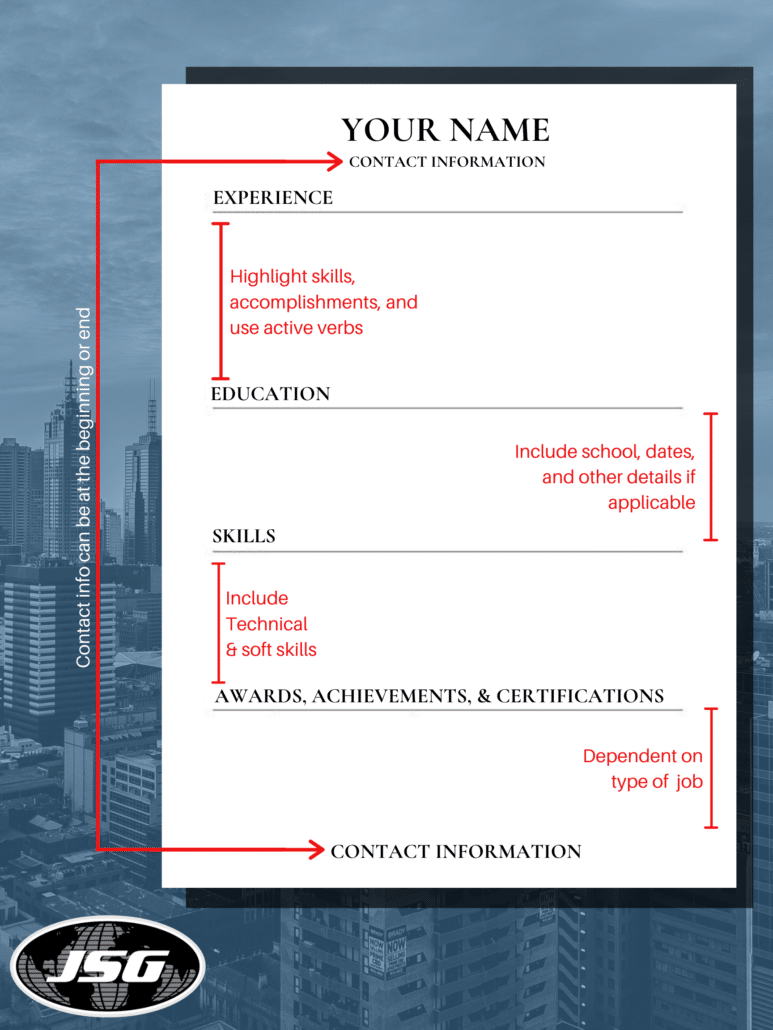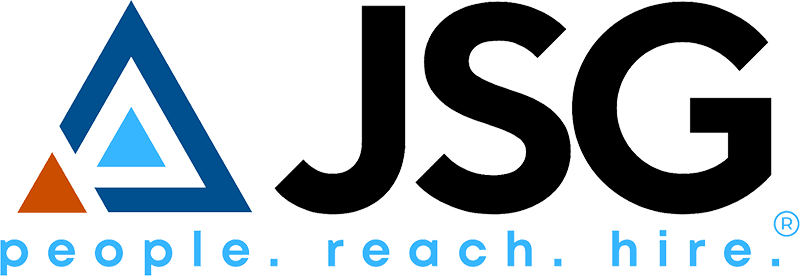Now, we know that a successful resume relies heavily on which job you’re applying to, what industry you work in, and of course, the experiences you have to fill it with. However, there are a few crucial things you should include, no matter which industry you’re in. A thoughtful resume is absolutely essential to landing your dream job. It’s the first impression your future employer will have of you, so it’s crucial to nail the details. Here are eight non-negotiables that are necessary to create a great resume.

Contact Info Front and Center
You would be surprised at the number of people who leave the most important thing off their resume—their name and contact information! How can your future employer give you the great news that you scored an interview if they don’t know how to get ahold of you? This should be front and center on your resume, making them remember your name!
Education & Experience
Your education, experience, and specific achievements are what demonstrate to a hiring manager that you are a good match for the job! What you focus on in these areas depends on the job. No matter what, your education should be short and sweet. It should include dates of attendance, where you received your degree, and other details if they are applicable to your job (i.e., Certifications, honors, GPA, relevant coursework)
Your work experience is the main area that potential employers focus on. They want to see if your past work history aligns with what you would be doing in the role you are applying for. This section should include the tangible impacts that you made throughout your work history. Don’t be afraid to brag a little! Be sure to cater your resume to each job to which you apply. Try to use similar words in your resume that you found in the job description.
Awards and Certifications
Displaying your awards and certifications is very dependent on if they apply to this specific open position. Your resume is a great place to show off your accomplishments. However, if you don’t have any that an employer would be impressed by, don’t feel pressured to include anything! While it’s great to include awards and certifications, not having any does not put you out of the running for a job.
List a Balance of Both Soft Skills and Technical Skills
Soft skills are becoming more and more important to employers. Show what you can bring to a team through examples of your leadership, communication, and adaptability throughout your career. And of course, technical skills are always necessary to get the job done. Highlight your technical skills through your field accomplishments and define what sets you apart from others through numbers and tangible achievements.
Integrate a Healthy Amount of Active Words
Replace passive verbs with active verbs in your resume if you want to stand out. Using active verbs shows the things that you have accomplished in your career. Some examples of active verbs include directed, generated, influenced, etc. The list goes on and on, but these words are much more influential and persuasive than passive ones.
Great Formatting
Formatting is everything when it comes to your resume. If it is too loud, it can stray hiring managers away from the critical information about you! Having a resume that is clean, clear, and well organized will always be the most successful.
Exceptional Spelling
Some hiring managers consider just a single typo on a resume an automatic veto and they trash the resume on the spot. Many take any misspellings or grammatical errors as a sign of poor attention to detail and a lack of care. Make sure you proofread your resume multiple times and maybe even have someone else look over it with fresh eyes.
Avoid Clichés
Exaggerating your skills is a cliché that will come back to haunt you after you’re hired. If you feel the need to inflate your skills, this job just isn’t the right fit for you. Another cliché you need to avoid is including irrelevant skills to the job. It takes up unnecessary space, making your resume look less clean and distracting from what’s most important.
With these tips in mind, remember that it is very important to customize your resume for every job. Read the job description and find a way to tailor your skills and experiences to mirror the job description, without exaggerating your skillsets. Stick to these resume guidelines, and your resume will be looking better than ever!





